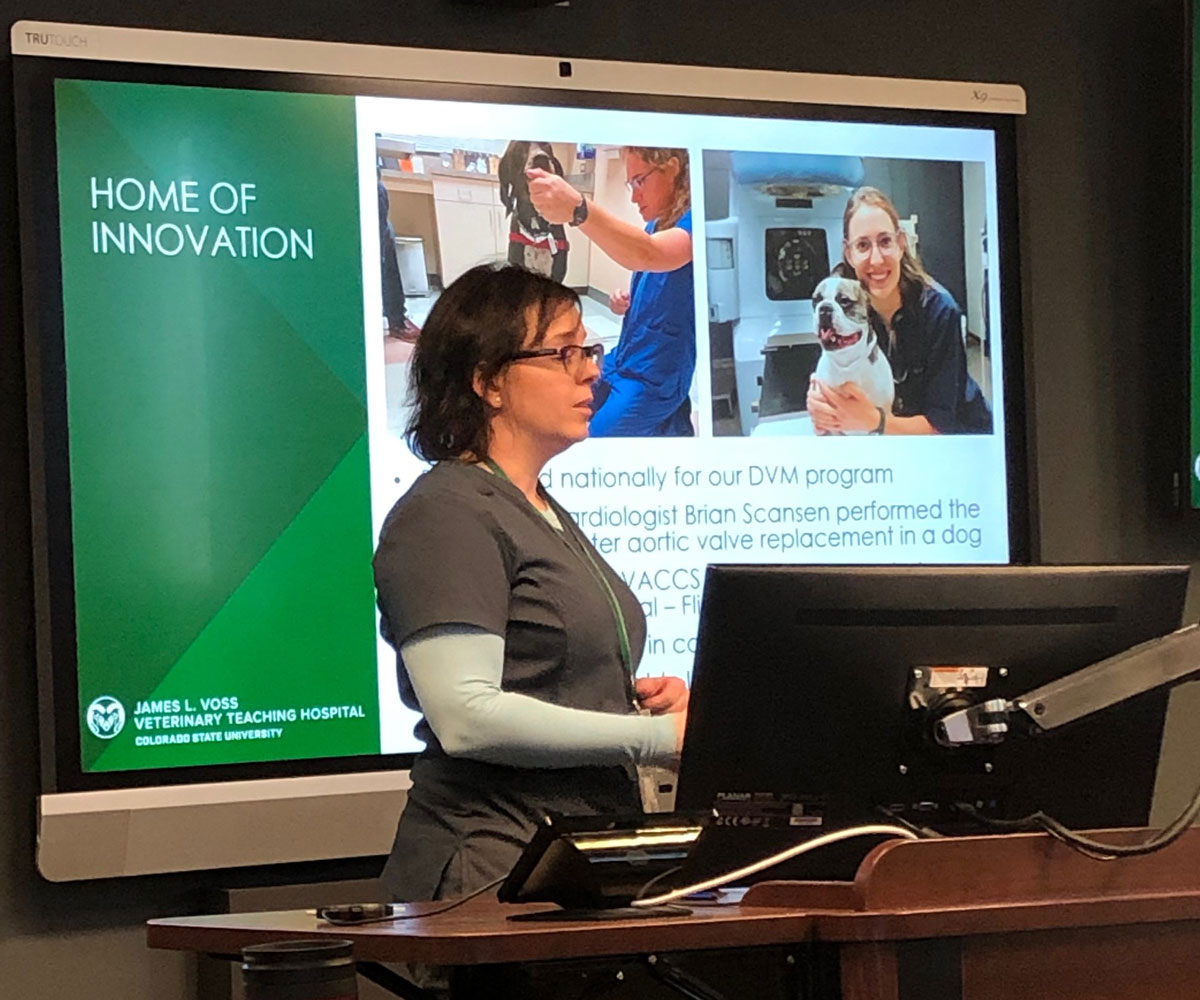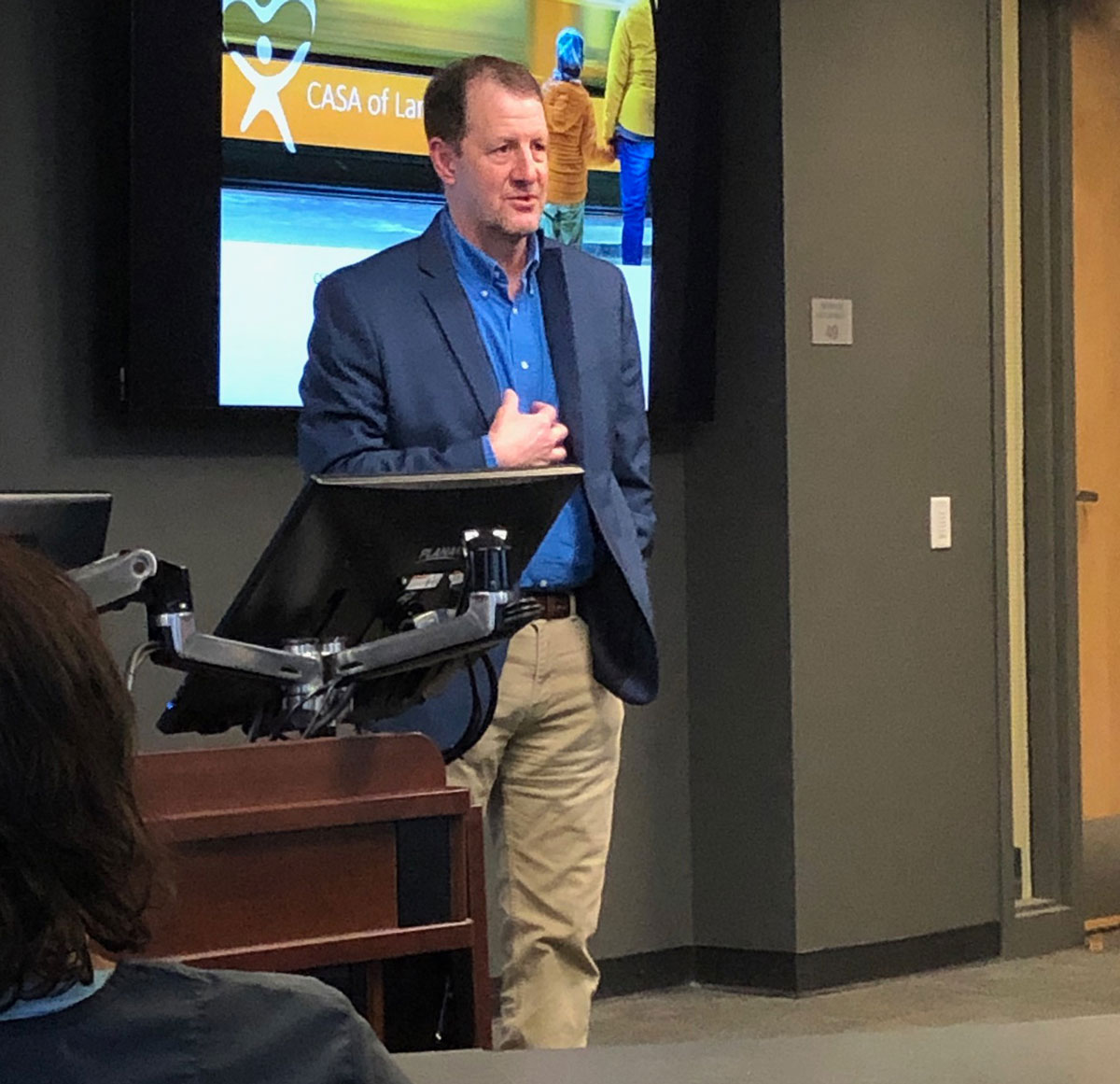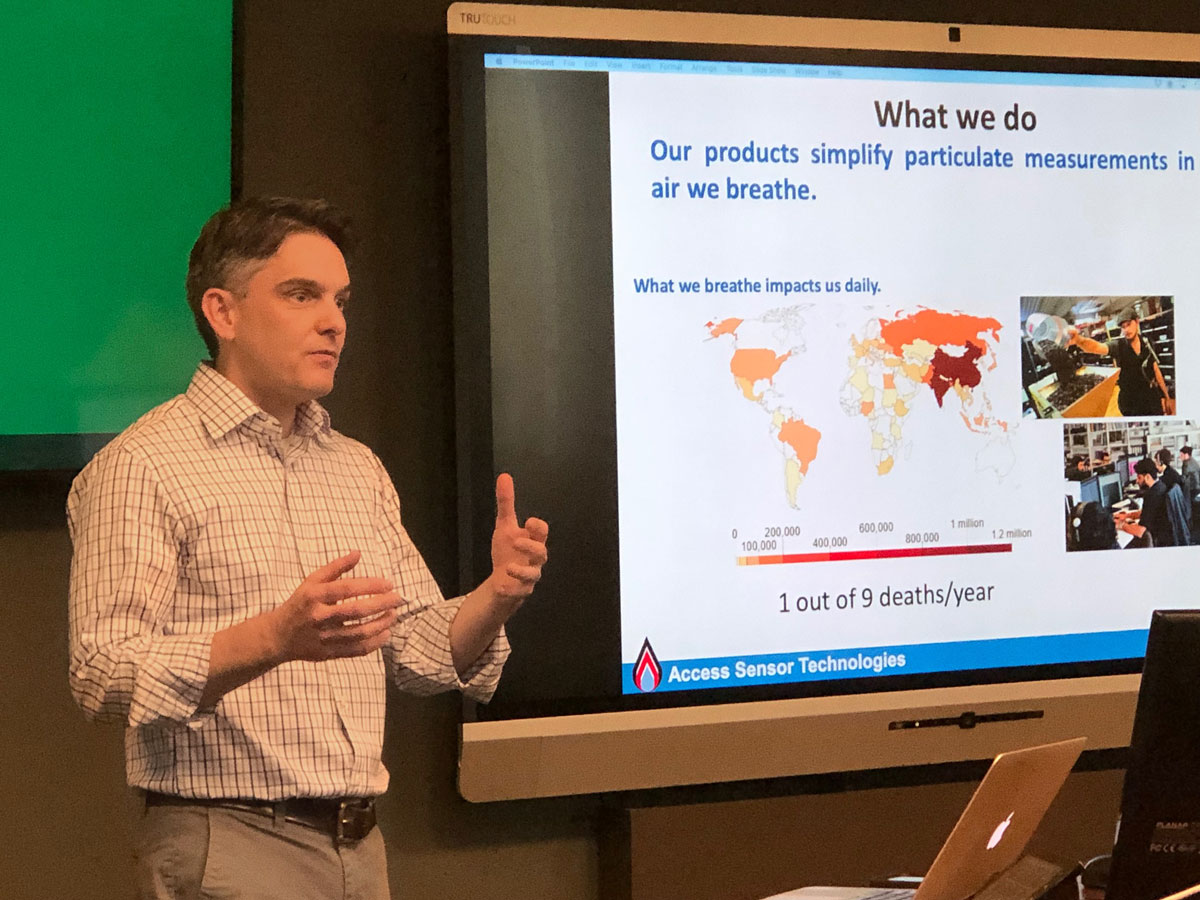
After successfully ramping up production of hand sanitizer at the request of the Federal Drug Administration when the pandemic began, the Birko Corporation had a decision to make as pressures eased: Now that it has the basic processes to produce pharmaceutical-grade hand sanitizer, is it a sound business decision to pursue the certification necessary to manufacture hand sanitizer in the long term?
As the company focused on day-to-day business and navigating the challenges the pandemic placed on its existing operations, it did what many firms do: call in consultants to help make an informed decision.
Rather than turning to a who’s who of industry think tank, Birko looked in a new direction. It called the College of Business’s fledgling consulting practicum course. The course, MGT 486A – Consulting Practicum, offers students and the business community a unique opportunity to team up and address real-world business challenges as equals.

“You really can’t look at this as an internship program where you’re just getting an augmentation of labor.”
— Mark Swanson
Birko chief executive officer
“You really can’t look at this as an internship program where you’re just getting an augmentation of labor,” Mark Swanson, Birko chief executive officer, said. “It really has to be framed around a consultative effort. That’s how both the students and the organization garner benefits from the effort. If you just look at it as an internship, I don’t think you’re really leveraging the talents that can be brought to the table.”
Birko tapped into a relatively new resource when it partnered with the College of Business. The course launched in Spring 2020 as an effort to provide signature experiences that break from traditional classroom learning and internships with a customized, one-of-a-kind exposure to industry. In the past two semesters, students have partnered with companies such as JBS USA, Access Sensor Technologies and CASA of Larimer County to address the challenges they’ll see after graduation.
Companies who participate in the program submit an RFP through http://www.cstateconsulting.org for consideration. Projects and organizations are vetted by College of Business faculty through the RFP process, examining the company’s internal culture, the needs of the project and its scope to guarantee a fit with student skills. If selected for the practicum, companies receive highly valuable business services as they help familiarize Biz Rams with the complexities of fast-paced business environments.
“They’re doing a market study on the acceptance of these products in the market, so they’ve taken quite a bit of heavy lifting off of our plate,” Kelly Green, Birko president and third-generation owner, said. “Today they’re working with our R&D, our operations, logistics, marketing and finance teams. They’re getting a full spectrum (view) of how a company operates from a lot of different angles.”
Welcome to the real world
This experience is at the heart of the Department of Management’s push to give students a signature experience in the Consulting Practicum course. The class provides the opportunity to flex the skills and knowledge gleaned from classroom learning while dealing with the oft-messy realities that come with addressing complicated issues in a business that can’t afford to slow to classroom pace.
The course, which is in its second semester, teams business seniors with companies, community-based organizations and nonprofits to address a tangible business need. Students work with managers from firms selected based on how well their needs fit the scope of a three-credit course; managers’ ability to actively engage with students throughout the semester; and how well firm culture mirrors the College’s values. Once matched with a project, students step out of the traditional classroom environment and start translating skills to a business setting.

“It’s about getting students to understand that they know more than they realize.”
– Bill Shuster
“You learn skills in the classroom, and then you’re magically supposed to just put them into play when you go to work when you graduate,” Bill Shuster, who developed and teaches the course, said. “It’s about getting students to understand that they know more than they realize. They are well versed in Excel spreadsheets, management techniques and business modeling. This course provides an opportunity to translate those business skills to the client.”
Shuster calls the real-world dimension of business skills the “batteries not included” skillset. That skillset encompasses everything from interpersonal soft skills to understanding that disciplines aren’t as siloed in the corporate world as they are in the College’s departments. Honing that knowledgebase and understanding interdisciplinary connections is as important as providing students with the tangible benefits of working in a real-world setting.
The experience students receive when engaging at that level with corporate partners goes beyond mere communication and business skills.
As students learn the intricacies of organizational structures they’re exposed to the pace, stresses and unpredictability inherent in any industry. It’s the type of experience that simply can’t be taught in the classroom. New graduates typically acquire it in the transitionary period of their first career job. The practicum shortcuts that process, helping students bring the corporate world into focus before they enter the job market.
“It definitely helps bridge that gap I think a lot of people have when they get their first job,” marketing senior Camerin Zell said. “They’re kind of thrown in there like, ‘Oh, this is really what I have to do?’ I think it will be super helpful starting my first job. It will definitely be interesting to see…those soft skills that I’ve developed just from this course alone.”

“It definitely helps bridge that gap I think a lot of people have when they get their first job.”
– Camerin Zell
Of course, the transition can be intimidating to students. That’s the point of the practicum – to force students out of the comfort of a classroom setting and use the skills they have developed in new ways.
“When I first started in this class, I was unsure that I was even qualified to be in it,” organization and innovation management alumna Hailey Boicken said, “but the more we have worked on the project, the more I have realized that I know more than I thought I did.”
It seems to be working.
True grit
Real-world scenarios and engagement with corporate partners are one feature of the practicum, but students also quickly discover that it has another side: real-world consequences that aren’t a part of case studies and classwork. Because students work to address a business problem, they encounter the human element as they collaborate with their corporate partners. Irrespective of the scenario, students are committed to delivering business value to the client.
For many students, that means coming to terms with the realization that employees have lives outside work and decisions they make have personal impacts. They discover employees are balancing job duties against homeschooling children in a pandemic. They learn that colleagues are in managerial roles simply for a larger paycheck, not for the challenge or responsibilities that come with it. In short, it’s a great chance to develop a sense of empathy that’s central to the College’s business for a better world outlook.

“The business world isn’t so clean and easily defined as it always is in class,” Shuster explained. “Just throwing students into that realization gives them a perspective that would be difficult to teach in any course.”
That messiness will inevitably spill over into student projects. Students in the practicum must learn to pivot as the parameters of their project evolve. While that can mean course corrections due to the mercurial nature of the marketplace, it can also lead students to watch the bottom fall out of their plan in the middle of the semester.
Many of the high-achieving students in the practicum worked to eliminate those bumps in the road with a mastery of business skills learned in the College of Business. A brush with failure is a new experience and gives them a chance to learn the invaluable lesson of picking themselves up after defeat.
“We just had a group have their project altered dramatically,” Shuster said. “Let me tell you, one day they got floored, bad. Yet, within a half-hour meeting, they put the rest back together, and now they’ve got things back on pace.”
The students effectively agreed with their client on end-of-semester deliverables since the project alteration, demonstrating how grit and resiliency are essential for this course.
Shuster hopes his students leave the practicum empowered with a set of experiences unlike anything they’d get in the classroom. So far, he seems to be achieving his goal, as his students emerge with a holistic understanding of the business world.
“It’s crazy to see how a decision can impact a company as a whole. You learn about it in class, but when you see it, it’s really impactful,” Zell said. “It’s just a great way to learn.”